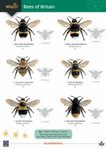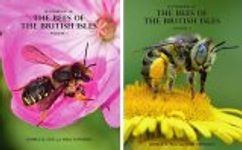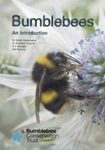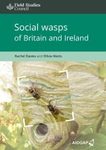![Vanishing Bees Vanishing Bees]()
Click to have a closer look
About this book
Contents
Biography
Related titles
About this book
In 2005, beekeepers in the United States began observing a mysterious and disturbing phenomenon: once-healthy colonies of bees were suddenly collapsing, leaving behind empty hives full of honey and pollen. Over the following decade, widespread honeybee deaths – some of which have come to be called Colony Collapse Disorder (CCD) – have continued to bedevil beekeepers and threaten the agricultural industries that rely on bees for pollination. Scientists continue to debate the causes of CCD, yet there is no clear consensus on how to best solve the problem.
Vanishing Bees takes us inside the debates over widespread honeybee deaths, introducing the various groups with a stake in solving the mystery of CCD, including beekeepers, entomologists, growers, agrichemical companies, and government regulators. Drawing from extensive interviews and first-hand observations, Sainath Suryanarayanan and Daniel Lee Kleinman examine how members of each group have acquired, disseminated, and evaluated knowledge about CCD. In addition, they explore the often-contentious interactions among different groups, detailing how they assert authority, gain trust, and build alliances.
As it explores the contours of the CCD crisis, Vanishing Bees considers an equally urgent question: what happens when farmers, scientists, beekeepers, corporations, and federal agencies approach the problem from different vantage points and cannot see eye-to-eye? The answer may have profound consequences for every person who wants to keep fresh food on the table.
Contents
Acknowledgments
Introduction
1 Knowing with Their Eyes? Beekeepers’ Understandings of CCD
2 Keeping the Research Disciplined: Entomological Understandings of the Controversy over Insecticides
3 Bees under the Treadmill of Agriculture: Growers’ Responses to Bee Decline
4 The Bottom-line for Bayer: Agrochemical Companies and ‘Bee Care’
5 Regulating Knowledge: The EPA and Pesticide Standards
Coda
Notes
Reference List
Index
Customer Reviews
Biography
Sainath Suryanarayanan is an assistant scientist of biology and society in the Department of Community and Environmental Sociology and in the Morgridge Institute for Research at the University of Wisconsin-Madison.
Daniel Lee Kleinman is an associate dean of the Graduate School at the University of Wisconsin-Madison, where he is also a professor in the Department of Community and Environmental Sociology. He is the author, editor, or coeditor of numerous books, including Impure Cultures: University Biology and the World of Commerce.
Out of Print
By: Sainath Suryanarayanan(Author), Daniel Lee Kleinman(Author)
159 pages, no illustrations
"[...] While I found the text enriching in exposing the complexities surrounding the CCD controversy, the review was very objective, perhaps to a fault. Specifically, at its strongest, the authors present the role of neonics in CCD as merely suggestive. The authors also come down hard on a couple of university-based studies on the role of CCD, whose methods they rightly critique, but this comes across as unbalanced when there are many unmentioned studies with improved methods that show compelling links between the usage of neonics and CCD. [...]"
– Chloe Malinka, The Niche, British Ecological Society magazine, December 2019
"The authors provide impressive and compelling social scientific insights into a major agricultural and environmental issue. Vanishing Bees is a fascinating case study of how knowledge and ignorance are produced."
– Elizabeth Popp Berman, University at Albany, SUNY
"A rigorous and provocative analysis of how scientists and citizens address a crisis."
– Jay Evans, Research Leader, Bee Research Lab, USDA-ARS
"Using the complex issues surrounding Colony Collapse Disorder, the authors perform an extraordinary feat, informing us about the politics of knowledge and ignorance, while showing how the strengths of modern science limits its ability to address problems of complexity."
– Lawrence Busch, Michigan State University
"There's a lot we don't know about why bees are vanishing, and this book provides the tools to understand why ignorance prevails. The analysis explains how our struggles with complexity are compounded by biases about who speaks as an expert."
– Steven Epstein, author of Impure Science: AIDS, Activism, and the Politics of Knowledge
"Honey bees are dying and humans are responding with a kaleidoscope of views and approaches to explain why. The authors artfully bring multiple perspectives together and offer a welcome glimpse into how we might unify to restore bee health."
– Marla Spivak, University of Minnesota




































